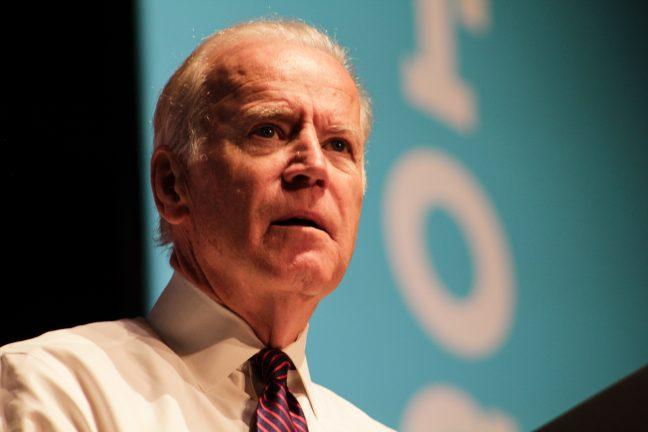The issue of abortion has divided today’s society, as emotions and opinions run strong on both sides of the debate.
With the nation’s economic struggles at the forefront of people’s minds, the debate has been out of the spotlight recently but is again being brought to light locally as the Madison Surgery Center is moving toward offering second-trimester abortions.
This new service is being considered after the retirement of Dennis Christensen, who provided second-trimester abortions at Madison’s Planned Parenthood. With his retirement at the end of December, there are no area facilities that provide this service.
This is the main reason why physicians at Madison Surgery Center are opting to take over these procedures as a service to the community, according to Lisa Brunette, spokesperson for University of Wisconsin Hospital and Clinics.
MSC is run in cooperation with UW Hospital and Clinics, Meriter Hospital and the UW Medical Foundation. It is governed by the UW Hospitals and Clinics Authority Board, which is composed of members from each of the hospitals along with seven representatives from UW.
They are in charge of, among other things, setting the hospital’s policies.
“The staff there is proposing they take over some of the responsibilities that were previously held by Planned Parenthood,” Board Chair David Walsh said. “I envision that a presentation will be made by those recommending it, and we’ll discuss it and make the decision that day.”
Their next meeting is Feb. 4, and the board will hear and vote on the physicians’ proposals. Walsh said he could see the vote going either way. However, if passed, the MSC Board will act toward implementation shortly thereafter.
Community uproar
Several anti-abortion organizations across Wisconsin have expressed outrage against MSC’s proposal, including the Alliance Defense Fund, Wisconsin Right to Life and Pro-Life Wisconsin.
The Alliance Defense Fund was one of the first organizations to publicly oppose MSC’s plan for second-trimester abortions and is composed of a group of lawyers whose purpose, according to their website, is to defend “the truth” through litigation and funding.
On Jan. 6, the group sent a letter to the UW Medical Foundation, UW Hospital and Clinics and Meriter Hospital expressing their disapproval of second-trimester abortions.
“It is extremely troubling that second-trimester dismemberment abortions are being imposed on a previously legitimate surgery clinic over the objection of employees,” ADF said in its letter.
Barbara Lyons, executive director of Wisconsin Right to Life, also voiced her organization’s disapproval.
“We are obviously against all abortions because they destroy the life of an unborn baby,” Lyons said. “It is very problematic in terms of moving late-term abortion to the surgery center.”
She said the issue of having life-enhancing treatment in one area of the hospital while ending human life by abortion in another area is concerning and also expressed concern over the health of the mothers and those in the clinic.
“Abortions are always a health concern for the mother, and there are mental health concerns for everyone that goes to that surgery center. It’s a bad mix,” Lyons said.
Pro-Life Wisconsin also released a statement from State Director Peggy Hamill, who said, “We are appalled to learn that our own publicly-funded University of Wisconsin hospital and medical foundation is planning to directly participate in the dismemberment of second-trimester babies.”
Lawmakers and ordinary citizens alike have also voiced concern about MSC’s new policy adoption, including Sen. Glenn Grothman, R-West Bend, who has sat in the state Senate for the last three years.
“Other hospitals in the country pride themselves on keeping children 24 to 25 weeks after conception alive,” Grothman said. “I can’t believe the university would want to be known for killing these children. … Even in the primarily atheistic countries in Europe, this would be illegal.”
As part of Grothman’s disapproval, he is calling for UW to come out and stop the new proposal, adding second-trimester abortions would tarnish the good name and prestige of the university.
He also said he would use his role as legislator to help introduce a resolution to stop these procedures from happening at the MSC.
Why second-trimester abortions?
While anti-abortion organizations may be in an uproar over the possibility of this service moving to a local surgical center, many feel this is something that is vital to the community.
Madison’s Planned Parenthood had been offering these services for years before the retirement of its leading physician.
According to Brunette, because second-trimester abortions are no longer available in Madison, there is a “public-health responsibility to provide such procedures as part of a comprehensive program of family planning and reproductive health care that our community deserves.”
UW graduate student Celeste Benson agrees. As a sociology student, Benson is writing her dissertation on the politics of abortion and said it is a matter of access that causes the need for second-trimester abortion availability, especially in major cities across rural states.
“The number of policies made it so getting abortion is more difficult than just going to a clinic,” Benson said. “Women have no access in rural areas.”
She added the only cities that offer second-trimester abortions are Appleton, Milwaukee and Madison. Because of this, there is a major delay in the amount of time it takes a woman to get an abortion.
“Increase in the legislation has made abortion access more difficult, pushing women into getting abortions later,” Benson said.
Benson also said while second-trimester abortions are necessary, the sooner a woman can get an abortion, the better. The later an abortion is done, the higher the risk of complications and emotional distress.
However, she added, “I think it’s important that people recognized why people would be getting second trimester abortions. … There are reasons why women get second-trimester abortions and access is a huge [reason].”
Despite the debate of whether abortions should even be completed, anti-abortion organizations are concerned about the possibility of research, public funding and coercion or discrimination of anti-abortion physicians.
Research, public funding and… coercion?
One of the major concerns raised by dissenters is whether aborted fetuses will be used for research at the university or by other researchers.
According to Lyons, Brunette said in the Wisconsin State Journal that tissue from the abortions could be used by UW researchers after review by faculty committee.
However, Brunette told The Badger Herald two days later “this proposal is being contemplated strictly as a service to our community. There are no current research studies (nor any plans to begin such studies) using materials from these medical procedures, nor are any contemplated.”
After hearing about Brunette’s change in policy, Grothman said, “I’m glad they changed their mind, if they can be trusted.”
Lyons was a bit more skeptical, saying the Jan. 7 comment was “right from the spokesperson’s mouth.”
Regardless, Brunette remains resolute that research involving human tissue has never been a consideration in development of this service.
Many also question where the funding for the second-trimester abortions is coming from — the state or the individuals?
Because UW and all of its affiliations are state-funded, many organizations, including Pro-Life Wisconsin, are worried about public tax dollars illegally going toward the procedures.
“How will this UWHC/Meriter plan accommodate existing state and federal laws that prohibit public funding of abortions and protect the conscience rights of our medical professionals? Medical staff at the Madison Surgery Center must be disheartened to learn that their esteemed, state-of-the-art surgical center will double as an abortion center,” Hamill said in a press release. Lyons agreed, condemning the idea of abortion and non-abortion fees being thrown in the same pool.
“When a patient not seeking an abortion pays a fee, they go into same pot that the abortion fees go into,” Lyons said. “That means that even non-abortion payments are underwriting the performance of abortions.”
In response to these accusations from anti-abortion groups, Brunette adamantly said no state funds will be paid to physicians for performing the abortions. Payments will be coming from patients, private insurance and other legally authorized Medicaid insurance.
Walsh also stressed the UW Hospitals and Clinics Authority Board is not involved in the funding of the second-trimester abortions.
“We are just an investor in the Madison Surgery Center, and the handling of it and its relationships are unrelated to us or, as we understand, the state,” Walsh said.
Another issue raised by the Alliance Defense Fund was the coercion of doctors into performing abortions despite their religious or ethical beliefs against such acts and the subsequent discrimination against anti-abortion doctors.
Brunette countered this argument, saying participations by doctors, providers, students and trainees will be “strictly voluntary.”
“Those with religious or moral objections are free to opt out and will not be penalized in any way for doing so,” Brunette said.















